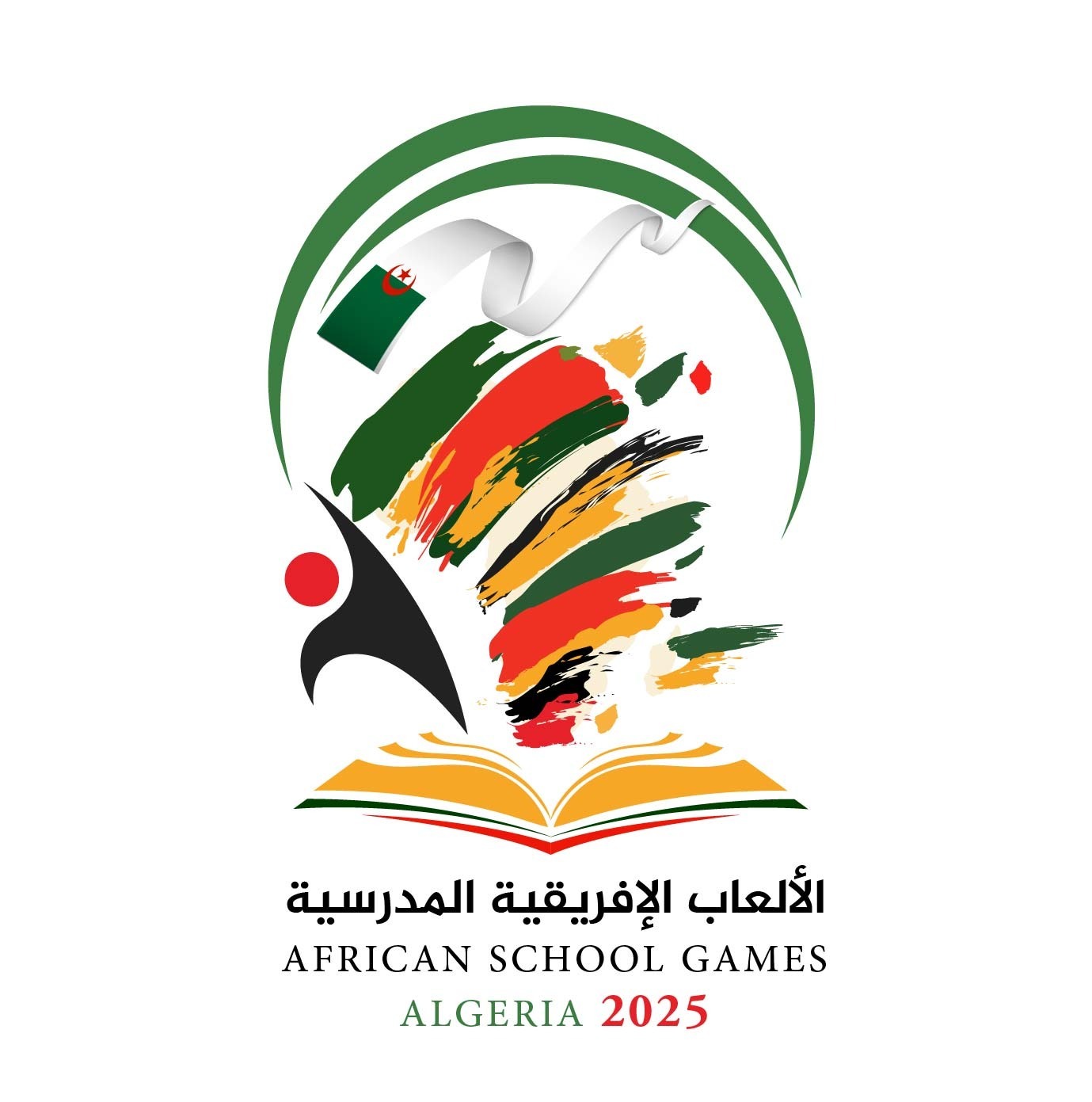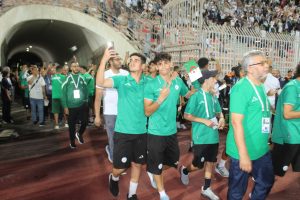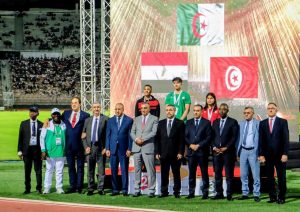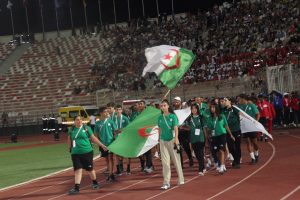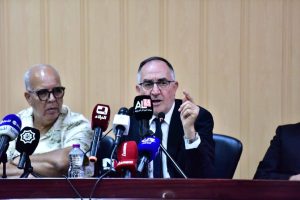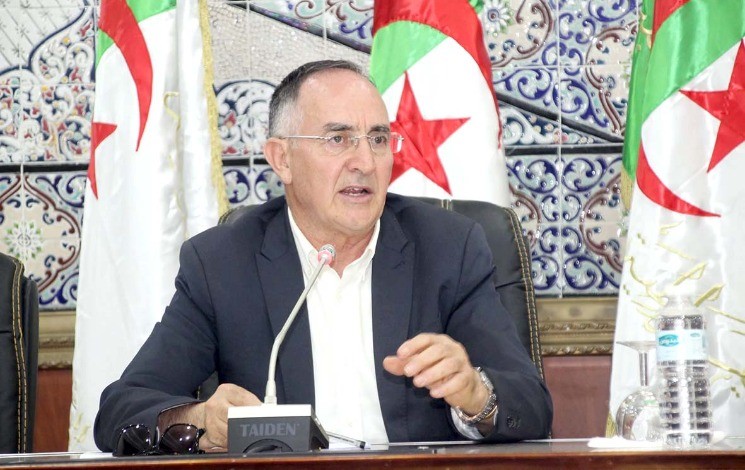
The National Organizing Committee of the African School Games steps up site visits to ensure host cities’ readinessSports infrastructure ready at 90%
26 October 2025
As part of the organizational momentum to host the first edition of the African School Games, scheduled from July 25 to August 5, 2025, in Algeria, the National Organizing Committee, chaired by Mr. Amar Brahmia, launched a series of field visits to the host wilayas to assess technical and logistical preparations and fine-tune final adjustments for the event.
These visits, carried out in several phases since preparations began, focused on Annaba, Skikda, Constantine, and Sétif, the four cities set to host the competitions. The latest inspection tour took place from June 24 to 27, 2025, during which the progress of works and organizational measures was evaluated, as well as the coordination between central and local organizing committees.
On-site monitoring led by multidisciplinary commissions
A large group of members from the sub-commissions of the National Organizing Committee participated in these visits, each commission playing a key role in evaluating various organizational aspects in the host cities. The infrastructure commission checked the status of sports facilities planned for official competitions and training, focusing on technical aspects and progress of site preparations. The equipment commission thoroughly reviewed the technical and logistical resources in place, including sports equipment, ensuring compliance with internationally recognized standards applicable to school competitions.
The competitions commission examined schedules, the distribution of disciplines across venues, and coordination with national and African sports federations to guarantee smooth organization and refereeing. Meanwhile, the information and communication commission finalized media coverage arrangements, identified live broadcast zones, and set up accreditation processes for local and foreign journalists to ensure smooth communication between organizers and the media.
Health aspects were not neglected: the health commission assessed the readiness of medical spaces and emergency centers, reviewed emergency plans, medical teams’ deployment points, and the system for responding to any health emergencies. The accreditation commission closely supervised the files of official delegations, athletes, and staff, finalizing the electronic accreditation system to guarantee secure and smooth access to event venues.
This coordinated work allowed for an accurate diagnosis of host cities’ readiness, alignment of the overall vision, and identification of points to be strengthened ahead of the final preparation phase.
Meetings with walis and local organizing committees
During each visit, the national committee held coordination meetings with the walis and local authorities to monitor preparation progress and remove any organizational obstacles. Working sessions with local committees presented comprehensive plans covering various organizational aspects.
These meetings covered accommodation and catering for delegations, both in university residences and designated hotels, ensuring capacity, quality, and welcoming conditions. They also addressed the distribution of official competitions and training sessions across sports venues according to each discipline’s needs, harmonizing schedules and ensuring smooth transportation between sites.
Cultural, recreational, and tourist activities accompanying the Games were reviewed to promote the heritage and cultural diversity of host cities and enrich the experience of participating African delegations. Special attention was also given to internal transport organization, focusing on the efficiency of travel networks between accommodations, stadiums, and competition venues, emphasizing flexible and rapid means of transport for athletes, staff, and media.
In health and logistics, discussions focused on defining health protocols and preventive measures, ensuring medical teams’ presence at main sites, revising emergency procedures, and allocating first aid points. Technical and logistical aspects of daily competition management and a rigorous system for resource and information management were also discussed.
At the end of each visit, National Committee members, led by Mr. Amar Brahmia, made practical recommendations and detailed observations to strengthen local teams’ preparation and ensure cohesion among all stakeholders. Strict respect for deadlines, better vertical alignment between national and local committees, and cross-sectoral coordination were emphasized to ensure an event that matches Algeria’s ambitions and Africa’s hopes.
Decentralized organization and local capacity enhancement
These tours reflect an organizational approach aimed at real involvement of wilayas and local actors in the event’s success by expanding local committees’ prerogatives and valuing available resources and skills on the ground, enabling effective role distribution and facilitated local decision-making.
In this context, Mr. Amar Brahmia stressed that these visits allowed direct observation of details impossible to detect remotely, adding: “Organization is not only about plans but about real on-the-ground cohesion uniting all levels around a shared goal: making the first edition of the African School Games a success on every front.”
A comprehensive vision for a historic continental event
This unprecedented educational sports event is held under the high patronage of the President of the Republic, Mr. Abdelmadjid Tebboune, with support from African and international bodies, notably ANOCA and ISF, and expects over 3,500 athletes and 1,000 staff from 22 African countries across 25 sports disciplines.Countdown to success
As the Games approach, these field visits mark a turning point in practical preparations and the start of the final phase, reflecting the collective commitment of central and local actors to deliver an edition that lives up to the aspirations of Algeria and all of Africa.
